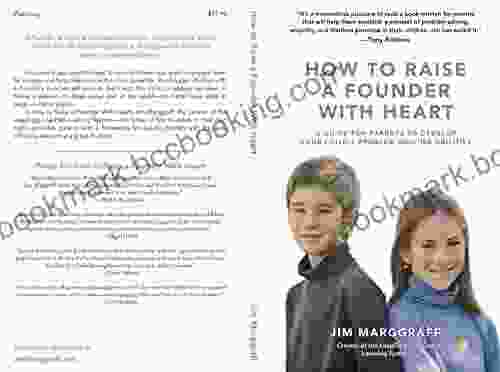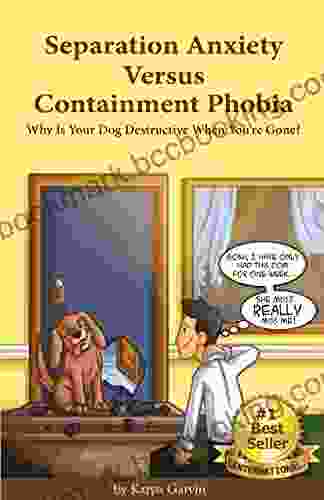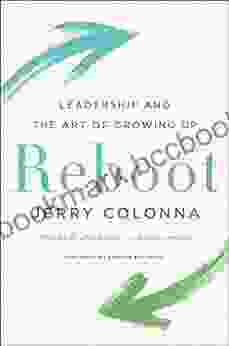Why Is Your Dog Destructive When You're Gone? Unearth the Reasons and Discover Proven Solutions

4.5 out of 5
| Language | : | English |
| File size | : | 2851 KB |
| Text-to-Speech | : | Enabled |
| Screen Reader | : | Supported |
| Enhanced typesetting | : | Enabled |
| Word Wise | : | Enabled |
| Print length | : | 154 pages |
| Lending | : | Enabled |
As a dog owner, one of the most disheartening sights is returning home to find your beloved companion has engaged in destructive behavior. Furniture is chewed, carpets are shredded, and belongings are strewn about in a chaotic mess. Understanding the reasons behind this frustrating behavior is crucial for developing effective solutions and fostering a harmonious home environment.
Delving into the Causes of Destructive Behavior
- Separation Anxiety: This is a common culprit, especially among newly adopted or rescued dogs. Separation anxiety arises from a dog's intense fear of being left alone. When you depart, your dog experiences overwhelming distress and may engage in destructive behavior as a coping mechanism.
- Boredom: Dogs are naturally curious and active creatures. When left alone for extended periods without sufficient mental or physical stimulation, they may resort to destructive behavior to alleviate boredom and entertain themselves.
- Lack of Exercise: A tired dog is a happy dog. Insufficient exercise can lead to pent-up energy that may manifest as destructive behavior. Ensuring your dog receives an adequate amount of daily activity is essential for their well-being.
- Attention-Seeking: Some dogs may engage in destructive behavior as a means of seeking attention from their owners. When you return home and reprimand your dog for their actions, they may perceive this as a form of engagement, inadvertently reinforcing the destructive behavior.
- Underlying Medical Conditions: In some cases, destructive behavior can be a symptom of an underlying medical condition. If your dog's destructive behavior is accompanied by other unusual symptoms, it's advisable to consult with your veterinarian to rule out any potential health issues.
Proven Strategies to Curb Destructive Behavior
- Address Separation Anxiety:
- Practice gradual departure and arrival routines to desensitize your dog.
- Provide your dog with a safe and comfortable space, such as a crate, when you leave.
- Consider using a pheromone diffuser or anxiety medication to reduce stress.
- Combat Boredom:
- Provide your dog with interactive toys, such as puzzle feeders and treat balls.
- Hire a dog walker or take your dog to doggy daycare for socialization and exercise.
- Consider puzzle games or obedience training to keep your dog's mind active.
- Ensure Adequate Exercise:
- Engage in regular walks, runs, or playtime with your dog.
- Consider enrolling your dog in agility or obedience classes for structured exercise.
- Provide safe outdoor spaces, such as a fenced-in yard, for your dog to explore and burn off energy.
- Avoid Attention-Seeking Behavior:
- Ignore your dog's destructive behavior and only give attention when they are calm and behaving appropriately.
- Redirect your dog's attention to positive activities, such as playing or going for a walk.
- Provide plenty of positive reinforcement for good behavior.
- Rule Out Medical Conditions:
- Consult with your veterinarian to ensure there are no underlying medical conditions contributing to the destructive behavior.
- Follow your veterinarian's recommendations for treatment or management of any medical issues.
Additional Tips for Success
- Be patient and consistent with your training efforts. It may take time and effort to see significant improvements.
- Consider seeking professional help from a certified dog trainer or behaviorist if the destructive behavior persists or escalates.
- Create a positive and supportive home environment for your dog, providing plenty of love, attention, and exercise.
- Remember that every dog is unique, and what works for one dog may not work for another. Adjust your approach as needed based on your dog's individual needs.
By understanding the reasons behind your dog's destructive behavior and implementing these proven strategies, you can effectively curb this frustrating problem and create a harmonious and stress-free living environment for both you and your beloved companion.
4.5 out of 5
| Language | : | English |
| File size | : | 2851 KB |
| Text-to-Speech | : | Enabled |
| Screen Reader | : | Supported |
| Enhanced typesetting | : | Enabled |
| Word Wise | : | Enabled |
| Print length | : | 154 pages |
| Lending | : | Enabled |
Do you want to contribute by writing guest posts on this blog?
Please contact us and send us a resume of previous articles that you have written.
 Book
Book Novel
Novel Page
Page Chapter
Chapter Text
Text Story
Story Genre
Genre Reader
Reader Library
Library Paperback
Paperback E-book
E-book Magazine
Magazine Newspaper
Newspaper Paragraph
Paragraph Sentence
Sentence Bookmark
Bookmark Shelf
Shelf Glossary
Glossary Bibliography
Bibliography Foreword
Foreword Preface
Preface Synopsis
Synopsis Annotation
Annotation Footnote
Footnote Manuscript
Manuscript Scroll
Scroll Codex
Codex Tome
Tome Bestseller
Bestseller Classics
Classics Library card
Library card Narrative
Narrative Biography
Biography Autobiography
Autobiography Memoir
Memoir Reference
Reference Encyclopedia
Encyclopedia Jennifer George
Jennifer George Robert Clifton Robinson
Robert Clifton Robinson Jenny Kales
Jenny Kales Jessie Daniels
Jessie Daniels Judy Aldrick
Judy Aldrick Jennifer Wilson
Jennifer Wilson Patricia Ola
Patricia Ola Kristen Radtke
Kristen Radtke Jennifer Dasal
Jennifer Dasal Jennifer Lynn Alvarez
Jennifer Lynn Alvarez Ory Slonim
Ory Slonim Traci Chee
Traci Chee Jessica Gadziala
Jessica Gadziala Jerry Azarkman
Jerry Azarkman Ranjit Kumar
Ranjit Kumar Tony Frezza
Tony Frezza Jenny Lexhed
Jenny Lexhed Jenelle Christine Copenhaver
Jenelle Christine Copenhaver Jillian Lauren
Jillian Lauren Paul Stewart
Paul Stewart
Light bulbAdvertise smarter! Our strategic ad space ensures maximum exposure. Reserve your spot today!

 Herman MelvilleThe Fantasy Writer Assistant And Other Stories: A Tapestry of Enchanting...
Herman MelvilleThe Fantasy Writer Assistant And Other Stories: A Tapestry of Enchanting... Gary CoxFollow ·16.8k
Gary CoxFollow ·16.8k Shawn ReedFollow ·10.9k
Shawn ReedFollow ·10.9k Jeremy CookFollow ·11.2k
Jeremy CookFollow ·11.2k Ron BlairFollow ·6.9k
Ron BlairFollow ·6.9k Blake KennedyFollow ·7.2k
Blake KennedyFollow ·7.2k John SteinbeckFollow ·7.9k
John SteinbeckFollow ·7.9k Ken SimmonsFollow ·18.8k
Ken SimmonsFollow ·18.8k Dustin RichardsonFollow ·8.3k
Dustin RichardsonFollow ·8.3k

 Patrick Rothfuss
Patrick RothfussGuide for Parents: Unlocking Your Child's Problem-Solving...
As a parent, you...

 Ignacio Hayes
Ignacio HayesThe Good Girls of Al Noor: A Gripping Tale of Hope and...
On March 15, 2019, a...

 Lee Simmons
Lee Simmons50 Games and Activities for All the Turkeys at Your...
Thanksgiving is a time for family, friends,...

 Sean Turner
Sean TurnerRewiring the World: From Edison to Google - The...
A Captivating...
4.5 out of 5
| Language | : | English |
| File size | : | 2851 KB |
| Text-to-Speech | : | Enabled |
| Screen Reader | : | Supported |
| Enhanced typesetting | : | Enabled |
| Word Wise | : | Enabled |
| Print length | : | 154 pages |
| Lending | : | Enabled |














